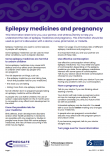Scam alert: Ads or websites claiming to have Medsafe approval or with the Medsafe logo are fake. Medsafe doesn’t endorse any health products, services or brands. Go to Medsafe for official information.
Phenytoin
Sounds like 'fen-ih-toe-in'
Key points about phenytoin
- Phenytoin is used to control seizures by preventing or decreasing them.
- It is an anti-seizure medication used in epilepsy or brain surgery.
- Phenytoin is also called Dilantin® or Dilantin Infatabs®.
- Find out how to take it safely and possible side effects.

Phenytoin is used to treat epilepsy by preventing or decreasing seizures. It’s also used to help prevent seizures during or after brain surgery. It works by stabilising the electrical activity in your brain and in this way reduces seizures. Read more about epilepsy.
In Aotearoa New Zealand, phenytoin is available as:
- chewable tablets (50 mg)
- capsules (30 mg and 100 mg)
- liquid (30 mg in 5 mL).
- The dose of phenytoin will be different for different people.
- Your doctor will start you on a low dose, and increase your dose slowly over a few weeks.
- Phenytoin is usually taken 1 or 2 times a day.
- Always take your phenytoin exactly as your healthcare provider has told you. The pharmacy label on your medicine will tell you how much phenytoin to take, how often to take it, and any special instructions.
- Phenytoin is best taken with or after food.
- Take your doses at the same times each day, usually 1 or 2 times a day.
- For doses that are taken 2 times a day, take it once in the morning and once in the evening. Ideally, these times are 10 to 12 hours apart, for example, some time between 7 and 8 am and between 7 and 8 pm.
- Phenytoin is available as chewable tablets, capsules and liquid.
| Formulation | How to take it |
| Tablets |
|
| Capsules |
|
| Liquid |
|
- Missed dose: If you forget to take your dose, take it as soon as you remember. But if your next dose is due anytime in the next 4 hours, skip the dose and just take the next dose at the usual time. Don't take double the dose.
Here are some things to know when you're taking phenytoin. Other things may be important as well, so ask your healthcare provider what you should know about.
- The effects of phenytoin are not immediate. It may take 2 weeks before seizures are controlled.
- Driving: Phenytoin can make you feel sleepy or blur your vision. Be careful when driving or using tools until you know how this medicine affects you.
- Children: If phenytoin makes your child sleepy they need to be extra careful when they ride a bike, climb trees or do anything that could be dangerous until they know how this medicine affects them.
- Other medicines: Phenytoin interacts with some other medicines (eg, the oral contraceptive pill, antidepressants and some antibiotics), herbal supplements (eg, St John’s Wort) and rongoā Māori. Check with your doctor or pharmacist before starting phenytoin or before starting any new medicines or supplements.
- Indigestion medicines: Don’t take indigestion medication (antacids) within 2 hours of taking phenytoin.
- Oral contraceptive pills: Some contraceptives may not work as well while you’re taking phenytoin, and for 4 weeks after stopping. You may need to change to an IUD device for contraception. Discuss this with your healthcare provider.
- Contraception: Once you start taking phenytoin you must use reliable contraception every time you have sex, even if it's only occasionally. Your healthcare provider can advise you about reliable contraception options. When you stop phenytoin, it's still important to continue using contraception until at least 1 month after stopping.
- Alcohol: Limit alcohol while you’re taking phenytoin. It can increase your chance of side effects such as dizziness.
- Keep taking phenytoin regularly every day (see tips to help you remember to take your medicines regularly). Do not stop taking phenytoin suddenly (unless you have a skin rash) as this can cause problems. Talk to your healthcare provider before stopping.
- Blood tests: You may need blood tests to make sure you’re taking the right amount of phenytoin.
- Taking phenytoin for more than a few years can cause your bones to become slightly weaker so your doctor may prescribe vitamin D for you to take.
- Breastfeeding: It's considered safe to breast feed your baby while taking medication for epilepsy. The baby will be exposed to small amounts of the medicine, but has been exposed to higher amounts during the pregnancy. Talk to your healthcare provider about this if you’re wanting to start breastfeeding.
If you are planning a pregnancy
- If you or your partner would like to become pregnant, or plan a family, contact your doctor 6 to 12 months ahead of time so you can make a plan and discuss the best options for you.
- If you have epilepsy, having seizures while you're pregnant can also harm your unborn child so it's important to keep taking anti-seizure medication.
If you're pregnant or think you might be pregnant
Keep taking your medicine at the right dose, and contact your healthcare provider straight away, tell them you think you're pregnant and make an urgent appointment to see them.
For more detailed information, see:
Like all medicines, phenytoin can cause side effects, although not everyone gets them. If you're concerned about any symptoms you think might be related to your medicine, talk to your healthcare provider. The following information offers some guidance but doesn't include all possible side effects.
Common side effects
Tell your healthcare provider if these side effects bother you.
- Nausea (feeling sick), vomiting (being sick) or having a sore stomach: Take phenytoin with or just after a meal.
- Constipation: Take phenytoin with a full glass of water.
- Feeling sleepy, drowsy or dizzy: Be careful when driving or using tools until you know how this medicine affects you. Limit or avoid alcohol as this can make these side effects worse. Read more epilepsy/seizures and driving(external link).
- Problems with your eyesight such as blurred vision or seeing double: Be careful when driving or using tools until you know how this medicine affects you.
- Gum problems such as swollen gums or bleeding gums: Practice good dental hygiene – brush and floss regularly, and visit your dentist regularly. Read more about how to take care of your teeth. Tell your dentist you're taking phenytoin.
- More hair growth on face, chest and back.
- Headache.
Tell your healthcare provider immediately or phone Healthline free on 0800 611 116 if these occur
- Low mood, suicidal thoughts – thoughts of harming yourself.
- Being unsteady on your feet or tremor and slurred speech. Your dose may need to be changed.
- Signs of problems with your liver such as severe tummy pain, yellowing of the eyes and skin, dark urine.
Phone 111 for an ambulance or go to your nearest accident and emergency (A&E) clinic if these occur
- Signs of an allergic reaction such as itchy skin, and rash, swollen lips or tongue, problems breathing, like a tight chest or shortness of breath.
Read more about medicines and side effects and reporting a reaction you think might be a side effect.
The following links provide further information on phenytoin:
Phenytoin(external link) New Zealand Formulary Patient Information
Dilantin(external link) Medsafe Consumer Information Sheet, NZ
Phenytoin for preventing seizures(external link) Medicines for children, NZF
Brochures
Epilepsy/seizures and driving(external link) NZTA
References
- Phenytoin(external link) New Zealand Formulary
- Phenytoin(external link) New Zealand Formulary for children
- Phenytoin (Dilantin) capsules formulation change – How did it affect patients?(external link) Medsafe, NZ, 2019
- Helping patients with epilepsy adhere to their medicines(external link) BPAC, NZ, 2017
- Balancing the benefits and risks of prescribing antiepileptic medicines in women(external link) BPAC, NZ, 2018
Brochures

Medicines and side effects
Healthify He Puna Waiora, NZ, 2024

Epilepsy medicines and pregnancy
Medsafe, NZ, 2025

Health Quality and Safety Commission, NZ, 2019 English, te reo Māori
Credits: Healthify editorial team. Healthify is brought to you by Health Navigator Charitable Trust.
Reviewed by: Stephanie Yee, Pharmacist, Auckland
Last reviewed:





